Water Sanitation & Hygiene
The World Economic Forum recognizes water as one of the most important global risks and the UN Sustainable Development Goals list WASH as one of its top priorities. The nation-wide campaign, ‘Swach Bharat Abhiyaan’ started by the Government since 2014 also aimed to improve the sanitation of public spaces by eliminating open defecation through the implementation of household and community-owned toilets and latrines, with a goal of achieving “open-defecation free” by October 2019. Though the campaign claimed some success, but it was experienced that WASH interventions required sustainable long-term behavior change practices. Several studies have made an association that adequate access to safe drinking water and improved hygiene and sanitation practices would lead to the overall improvement in the health and quality of life of the people.
Sabuj Sangha aims at providing clean water access to the high-risk communities through its various initiatives.
Sabuj Sangha remained instrumental in improving the community level Safe Water Resources, Sanitation and Hygiene scenario in remote corners of Sundarbans since last more than two decades both for schools and the community at large. We not only created infrastructural facilities but also established a mechanism so that the Communities, School Authorities and Students own the Facilities and Keep close look on maintenance. We endeavoured for the same in different corners of Alipurduar district as well.
Community Infrastructure
The situation is even more pondering because of the continuous threat of natural disaster and the remotes of the area. Today, the UNESCO World Heritage Site has an acute shortage of potable water and sanitation and its people are being deprived of their basic needs to a very high degree.
Since 1992 to till date, the organization has improved more than 50000 households sanitation in the entire project locations. Sabuj Sangha believes that it is an important aspect to bring behavioural changes and improvement of personal hygiene among community people. The organization also envisages for proper utilization and maintenance of household level sanitation and as a result 5 nos. of Gram Panchayat and 1 block were awarded as ‘Nirmal Gram Panchayat’ and ‘Nirmal Block’ by the Ministry of Water & Sanitation, Govt. of India. As an implementer organization, Sabuj Sangha was selected as a resource organization of South 24 Parganas District for mentoring the different PRI personnel.
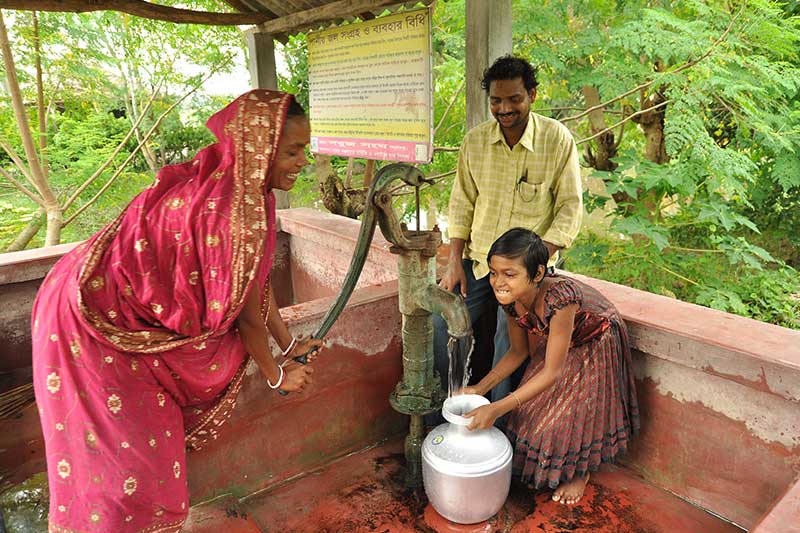
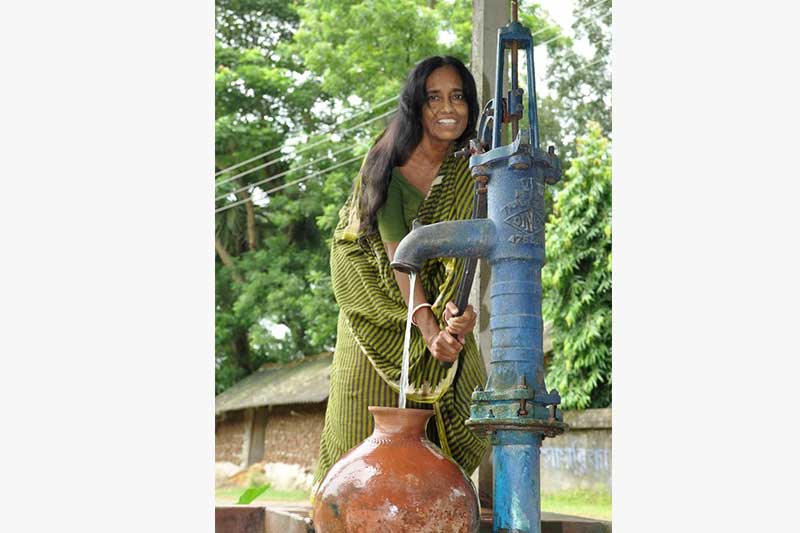
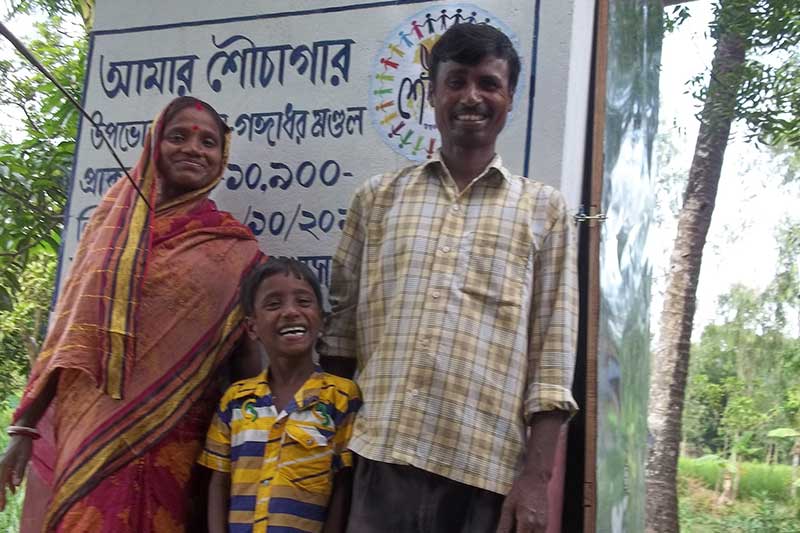
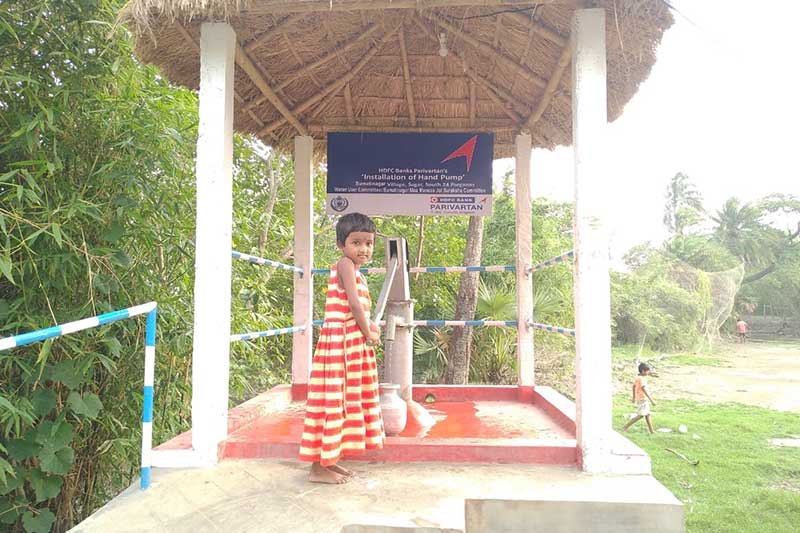
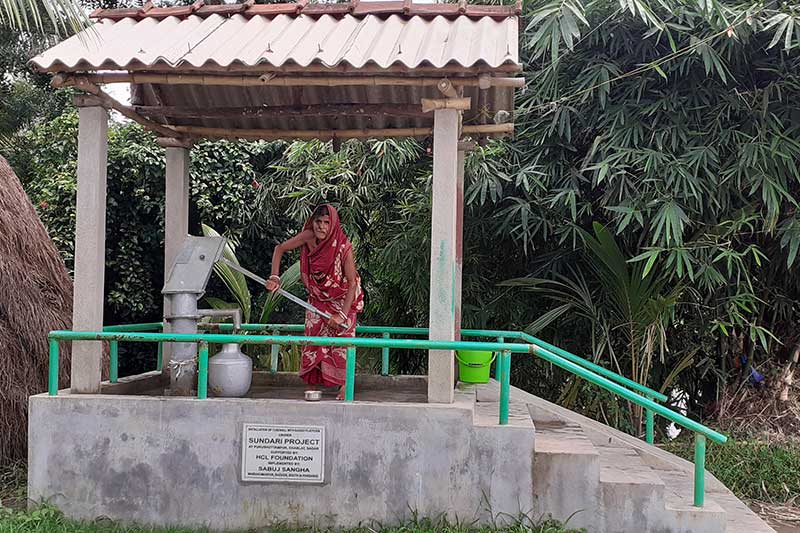
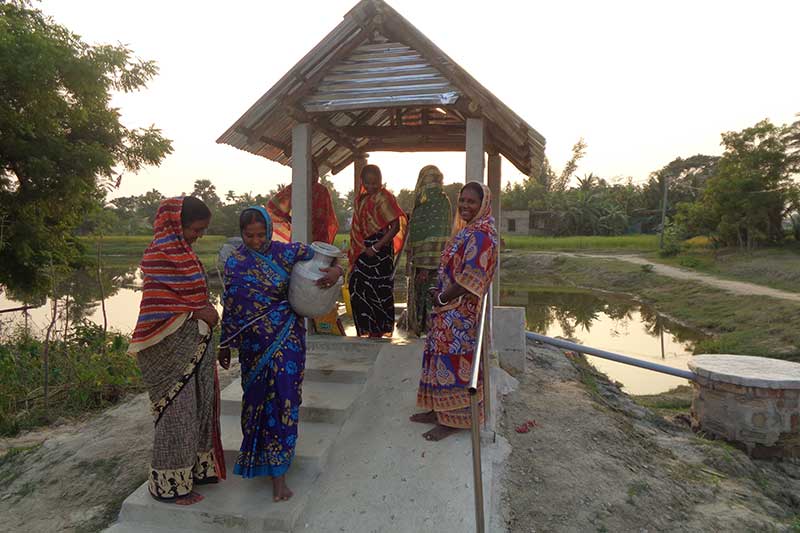
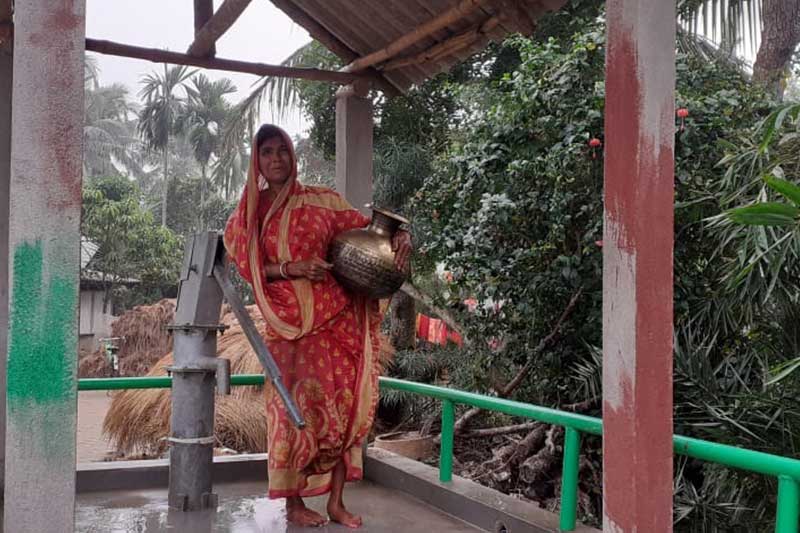
Till date, we have successfully organised more than 100 (Water Sanitation Management Committee) WATSAN Committees (Decisive committee for look after and decisions for any Water & Sanitation related matters). Since the inception 500 Safe Water Tube wells were installed in different location of the entire project areas. Almost 2750 no. of people have received the benefit of this installation as of now. Sabuj Sangha believes and practices community participation and their engagement in the implementation process.
School level Water & Sanitation
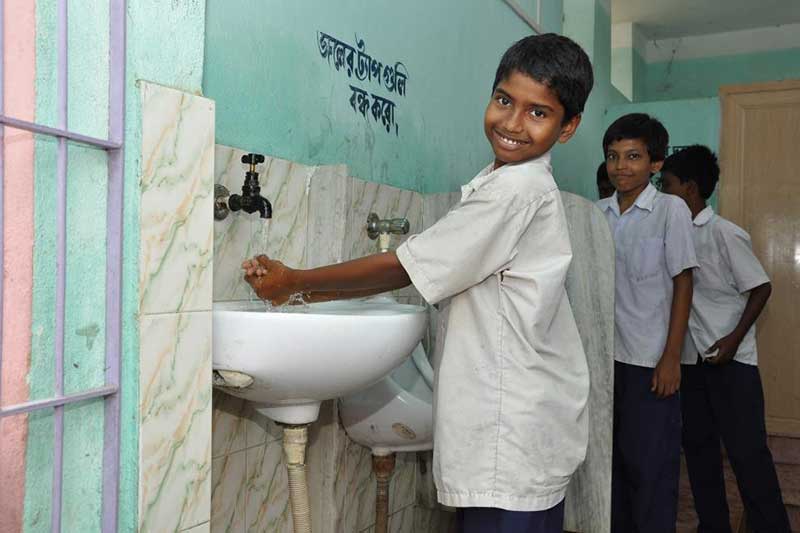
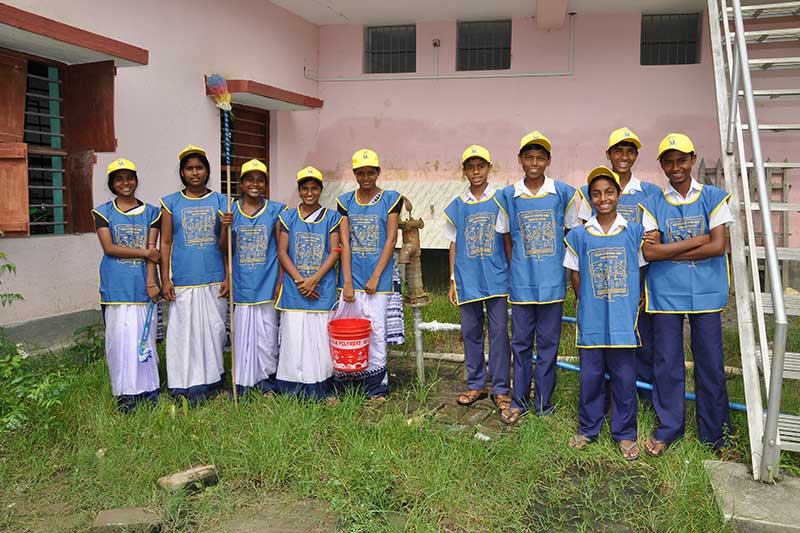
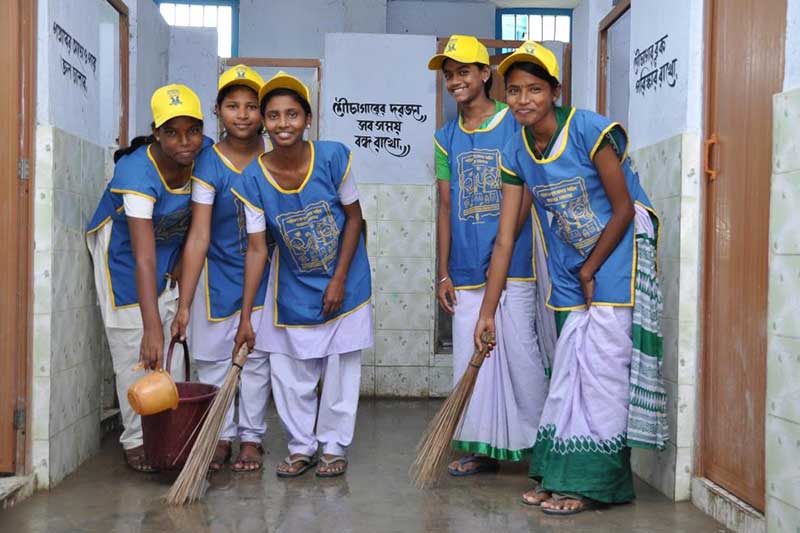
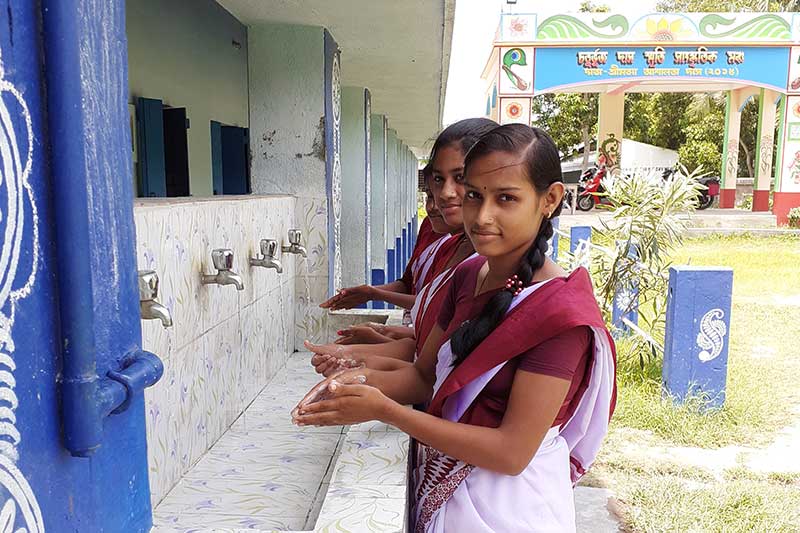
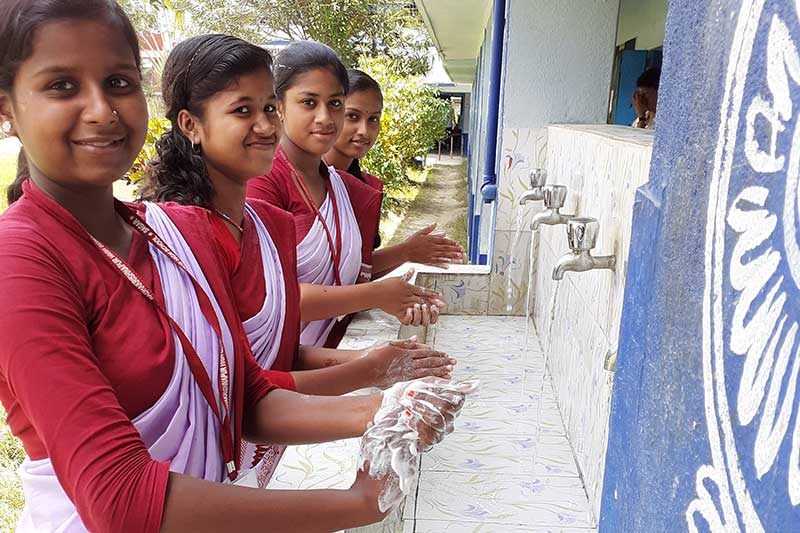
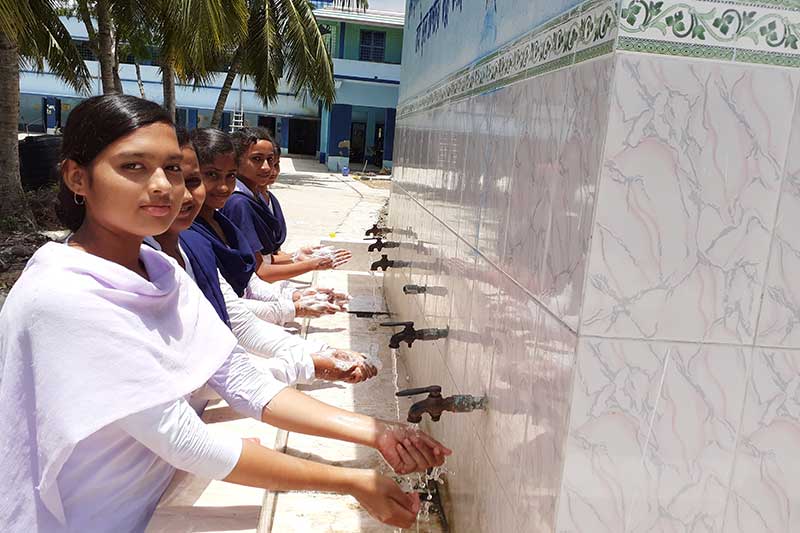
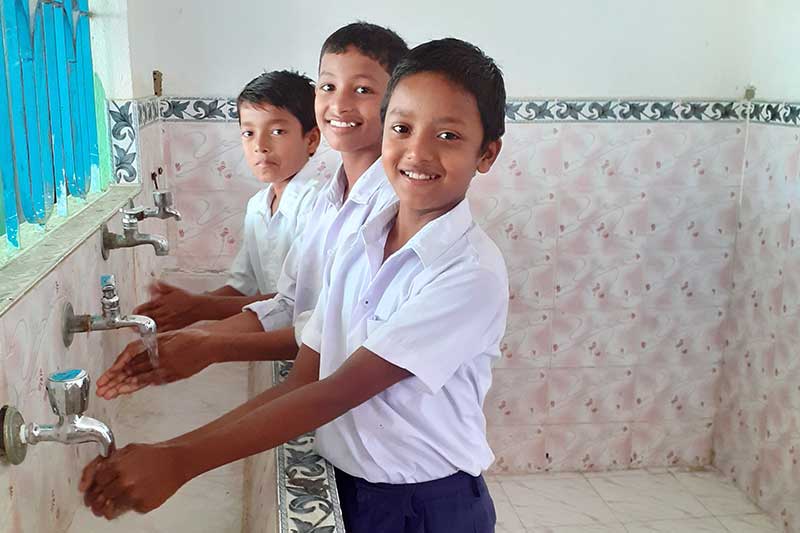
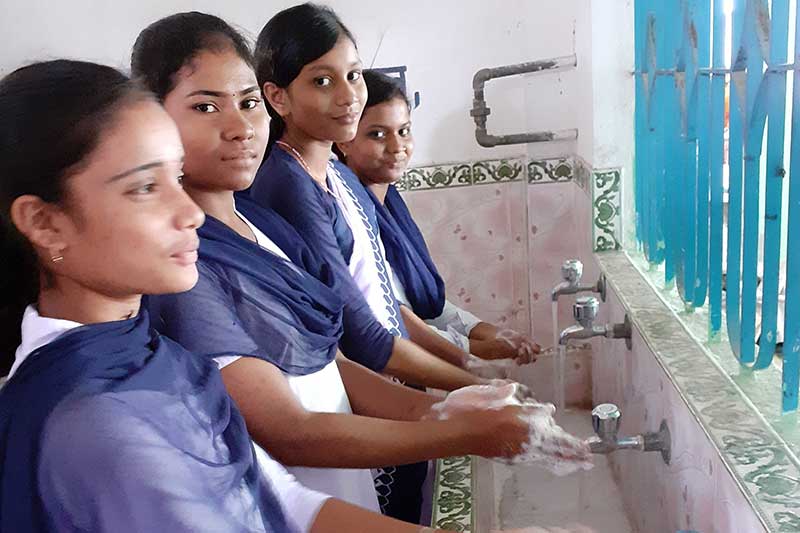
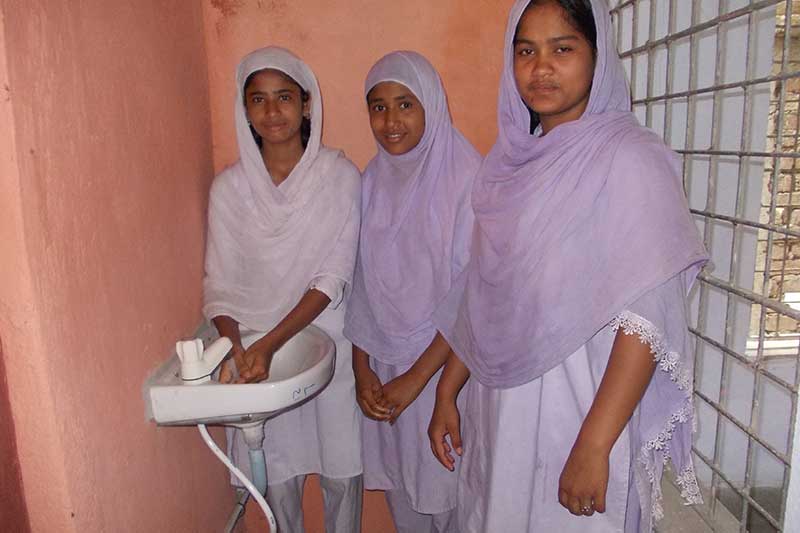
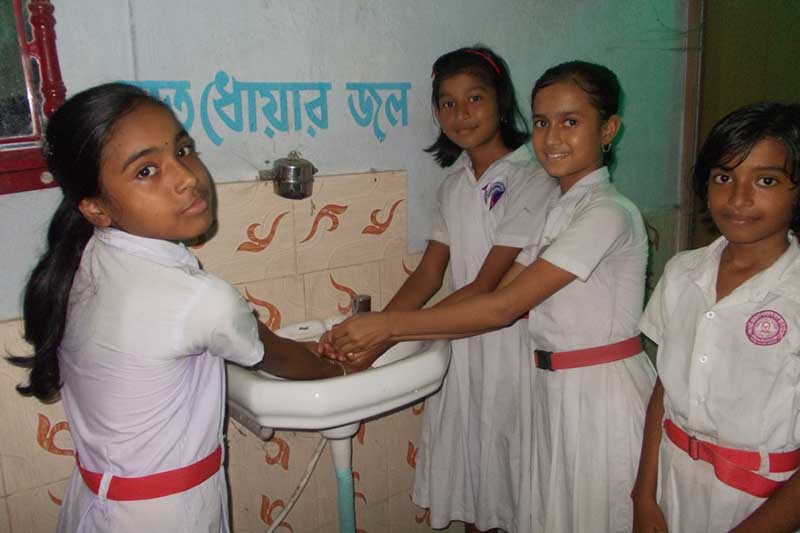
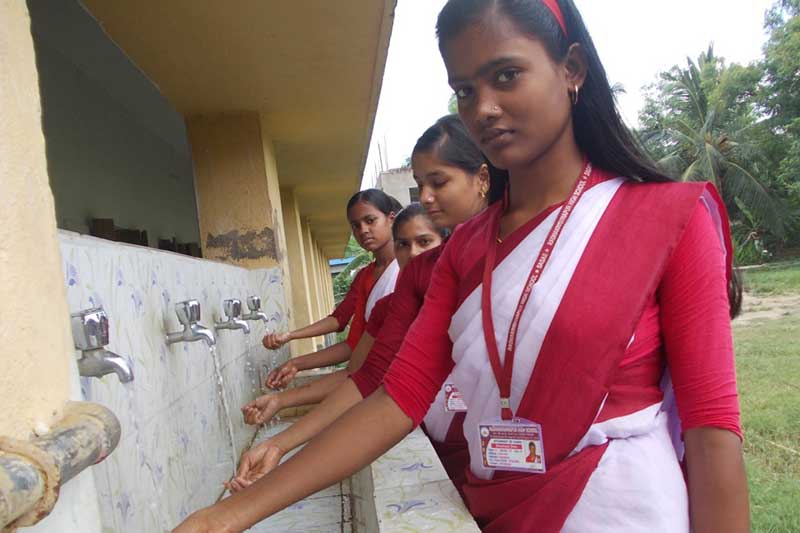
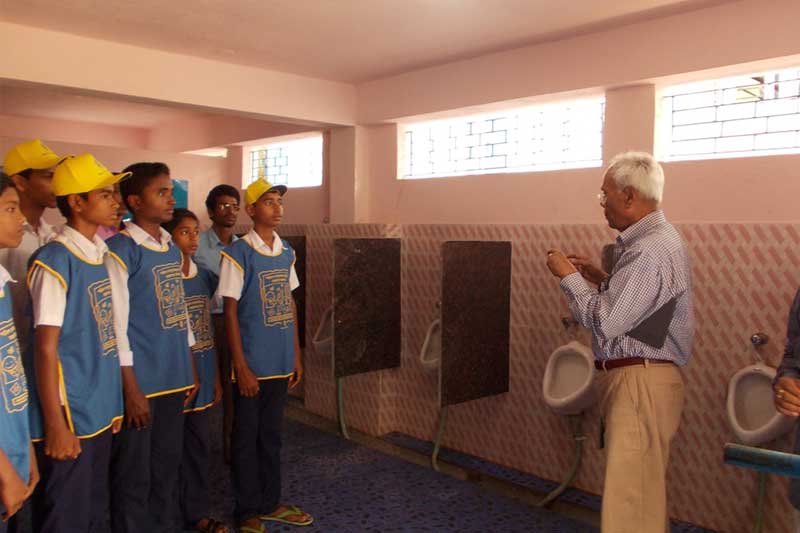
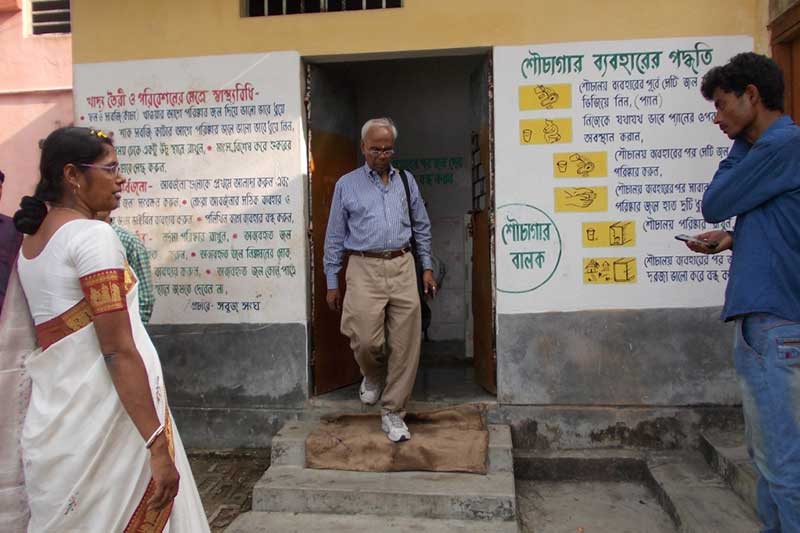
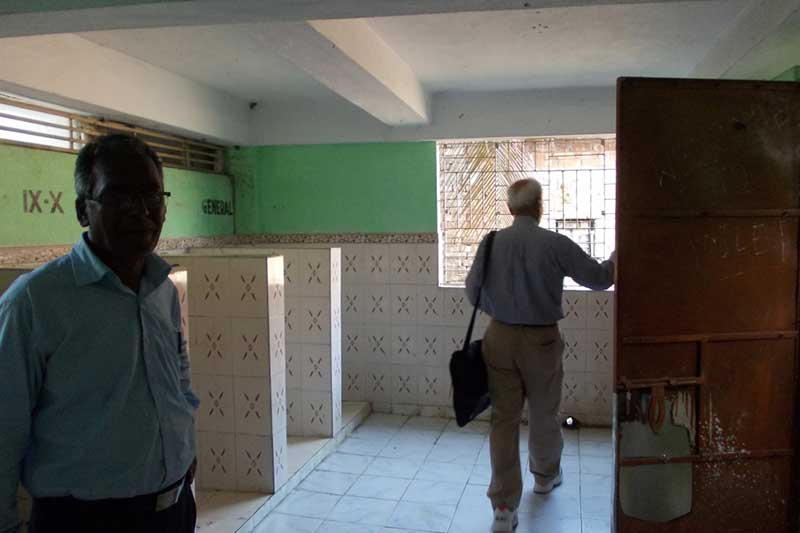
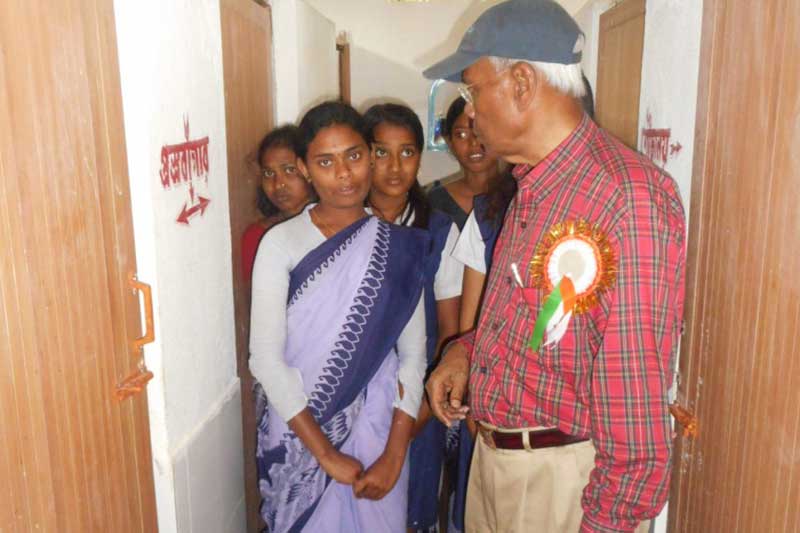
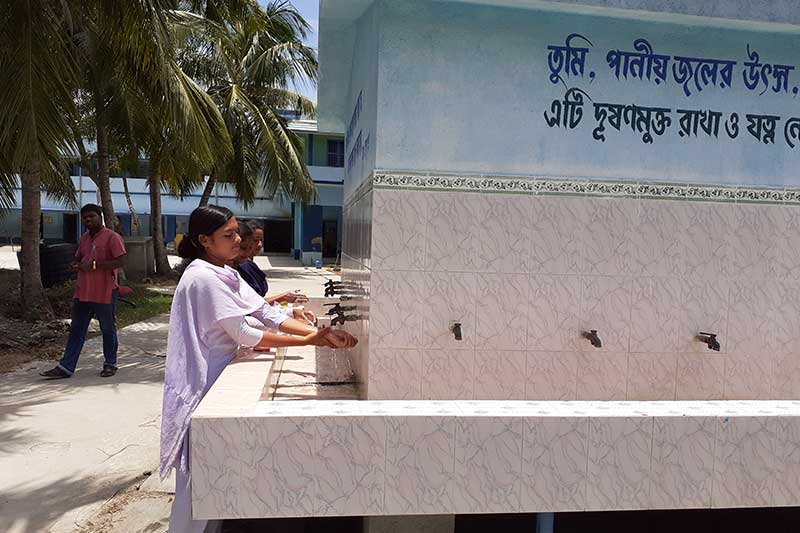
The organization also works for the improvements of Water & Sanitation status in school level and almost more than 100 schools have improved their infrastructure and use in terms of sanitation. More particularly a model water and sanitation programme was realized in 1 isolated block in Sagar Island of South 24 Parganas, West Bengal.
Beside this, Sabuj Sangha has completed 100% school sanitation and formed Water Sanitation Management Committee (WATSAN) consisting of student and teacher. This committee mainly ensures the maintenance of water and sanitation infrastructure by contributing a certain amount in a particular account of a Nationalized Bank / Cooperative Bank for future maintenance. This process ensures the sustainability of the Water and Sanitation in School level.
Even during the severe pandemic situation, Sabuj Sangha continued to monitor and mobilize the communities and the schools. Classes are continuously monitored the conditions of safe water resources and sanitary facilities (inclusive of Girls & Boys Lavatories, Urinals and Changing Rooms) in the Community Safe Water Facilities in the Mathurapur II and Patharpratima Blocks of South 24 Parganas district and 26 remote rural locations in forested Kumargram block of Alipurduar district.
Awareness and Knowledge Sharing on Personal Hygiene
Poor hygiene practices and inadequate sanitary conditions play major roles in the increased burden of communicable diseases. As a result, the worst affected are the children, adolescents and the women who need urgent help.
We have been actively working and creating awareness on hygiene practises in both the rural and urban among the women and adolescent groups in Sundarbans, Kolkata & Bidhannagar regions.
Several discussions on basic hygiene, maintenance of cleanliness, discussion on communicable diseases, maintenance of life style, food habits and so on are important topics of discussion during the regular awareness campaigns. Community people are encouraged to keep the environment clean and ensure proper disposal of waste materials to avoid spread of germs and infections.

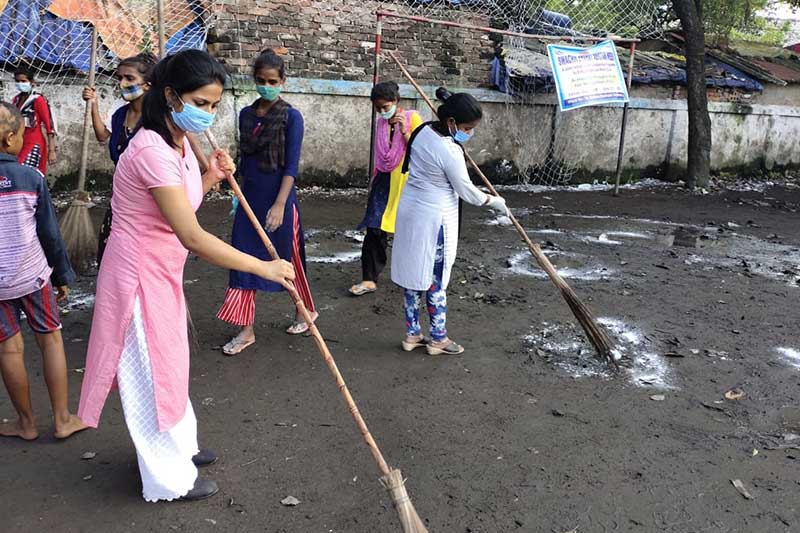
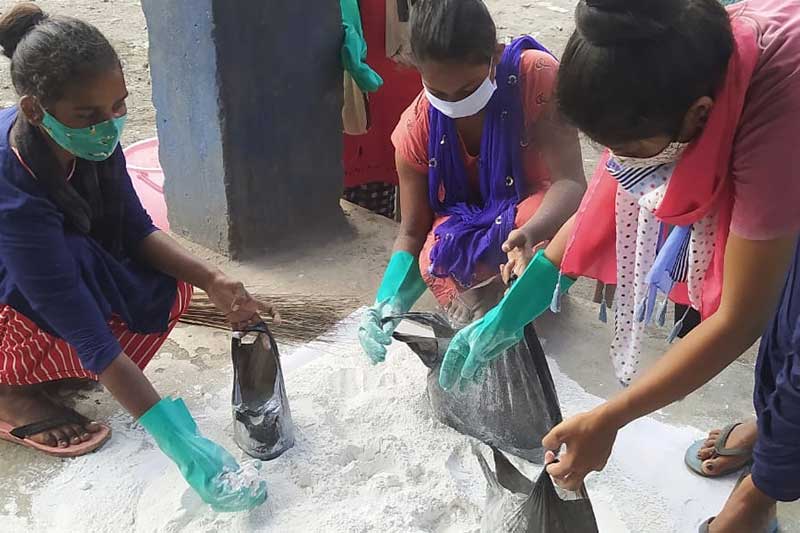
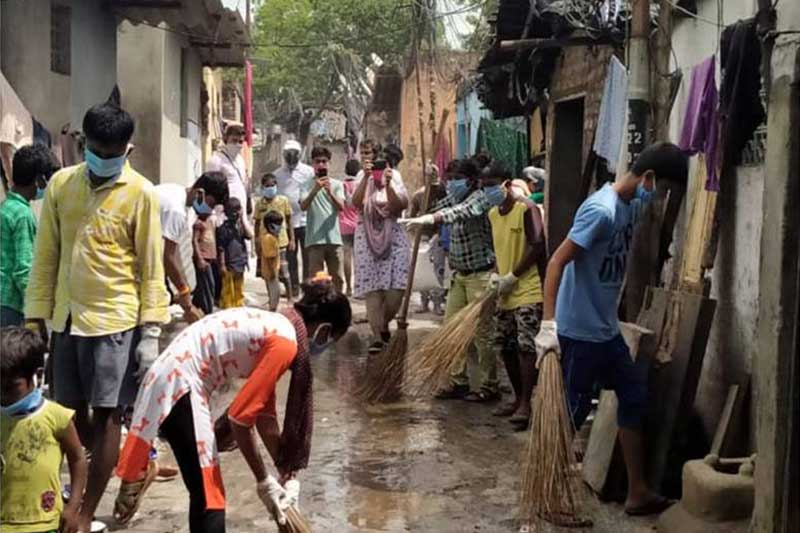
Menstruation is accompanied by amusing myths, misconceptions, and misinformation which are hugely damaging for many girls and women. It is more prominent in the rural areas and congested parts of the urban areas. Sabuj Sangha makes efforts in creating awareness on menstrual health and use of sanitary napkins through focus group discussions, use of social media and continuous interaction in the communities and schools. Experts from the medical field play a crucial role in facilitating the various discussions. Distributions of sanitary napkins are encouraged to bring improvement in the menstrual health.
